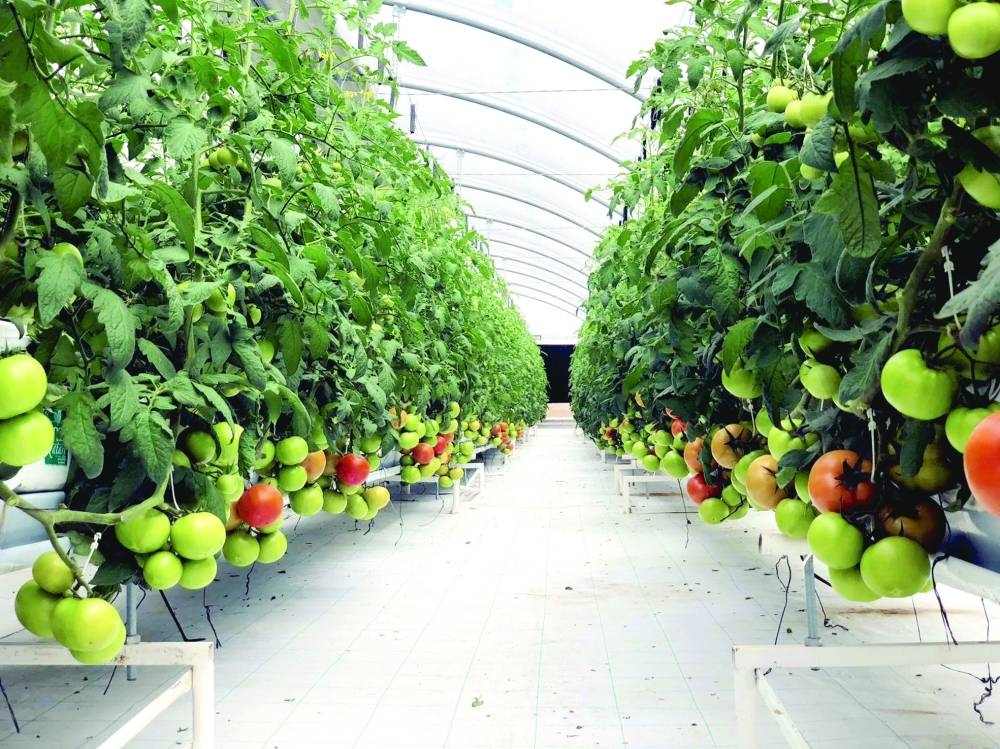Strategic location and technological infrastructure make Doha a promising candidate for transforming its agritech industry in the Middle East and North Africa (Mena) region, according to the Investment Promotion Agency (IPA) Qatar.
Vertical farms and hydroponics offer vast opportunities to leverage from biotechnology to expand agriculture in Doha, said Invest Qatar in its report.
"Qatar is a promising candidate for transformation of its agritech industry in the Mena region because of its strategic location and tech infrastructure," it said.
In this regard, it highlighted that Qatar has high potential for import substitution as 90% of its food is sourced from overseas; value addition has seen an 73% increase between 2000 and 2019; and as much as 51,000 hectares capacity for increasing the land used for cultivation.
Finding that rising disposable income and growing population are driving increasing demand for agricultural products; the report said private consumption in Qatar is expected to grow at 5.7% this year.
The report highlighted the government initiatives such as joint food security project (Qatar National Research Fund and Ministry of Municipality) aimed at investments in sustainable food systems.
It also noted the partnerships between the Qatar Free Zones Authority (QFZA) and the Ministry of Municipality to create investment opportunities in agritech.
The report noted that hydroponics and aquaponics with the Artificial Intelligence of Things (HAIAT) project, which was recently started at QEER (Qatar Environment and Energy Research Institute).
The Qatar Development Bank (QDB) supports indoor vertical farming under Jahiz 2, which seeks to attract entrepreneurs with innovative industrial investments.
IPA Qatar’s memorandum of understanding with Wadi Water will enable the company to invest in innovative technologies in the agriculture industry.
Mahaseel, owned by Hassad food, supports local agricultural production and private sector investments in agritech innovation.
Qatar’s vegetable and green fodder production values are expected to increase "significantly" to achieve the national target of 80% self-sufficiency, the report said.
Qatar is well developed for agricultural production investments, supported by government policies, increasing consumption and disposable income. It is promotes investment in agriculture as part of its food security strategy.
Highlighting that tech-based agricultural practices in Middle East and North Africa (Mena) have revolutionised agri-food sector investments; it said licensed IoT connections in Mena is slated to more than double to 70mn by 2025, enhancing the potential of agritech in the region.
On the growing promise in the Mena agritech industry, the report said 33 investment deals in agritech startups amounting to $250mn in disclosed investments in the region from 2014 to 2020.
The report found that as much as 70% of the global total usage of technologies like hydroponic farming, drip irrigation, and desalination plants are utilised in Mena's agriculture sector.
Highlighting that the controlled environment agriculture (CEA) is widely used in hot environments to improve the productivity of crops; it said "it is estimated that 70% of fresh vegetables and fruits could be economically grown in the Mena region using CEA."

Vertical farms and hydroponics offer vast opportunities to leverage from biotechnology to expand agriculture in Qatar, according to an Invest Qatar report.

